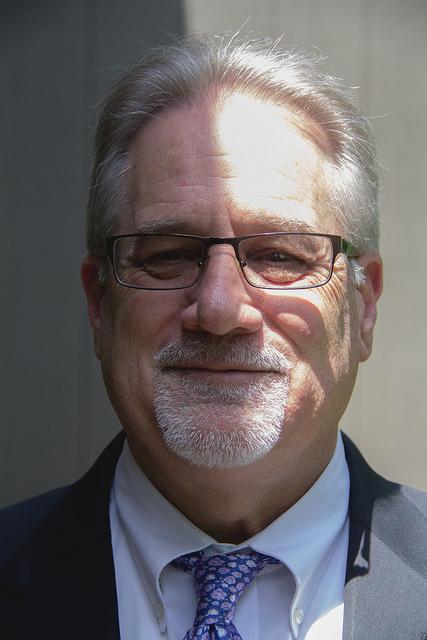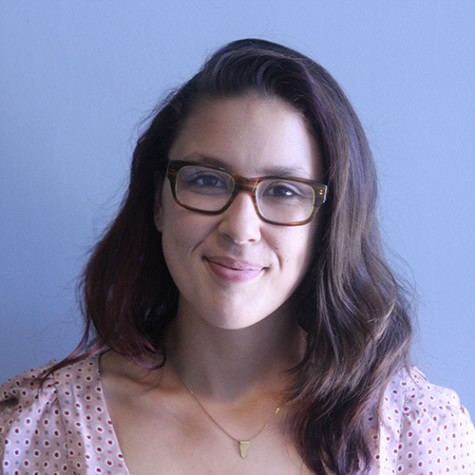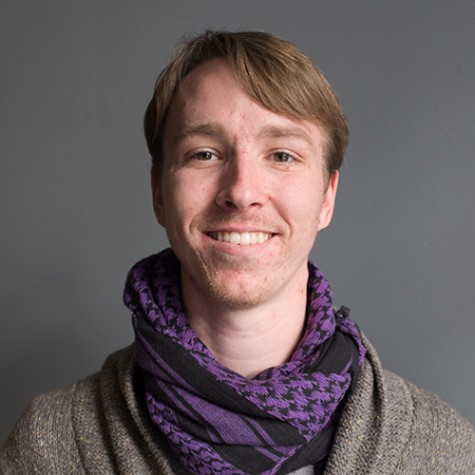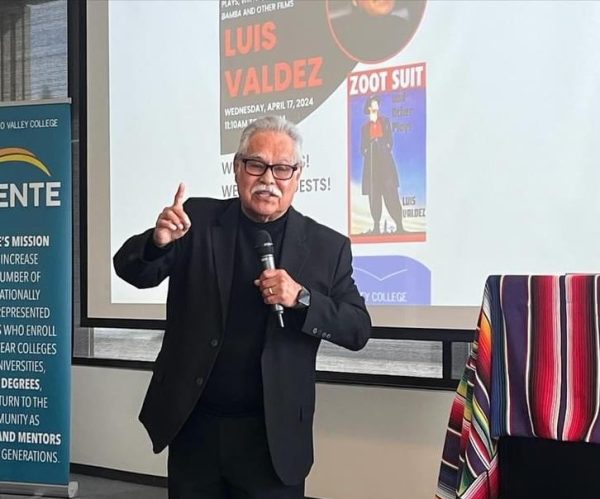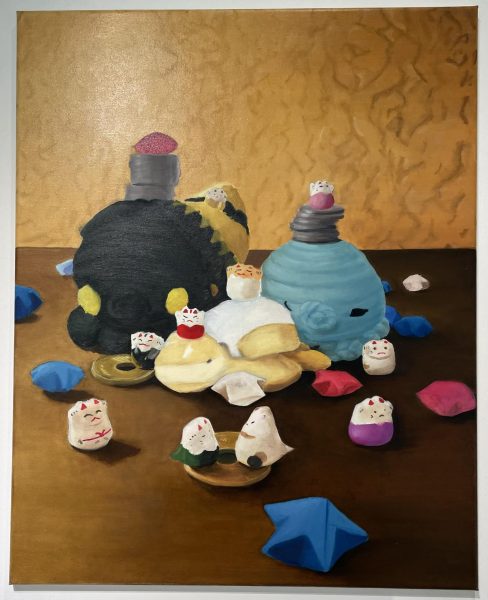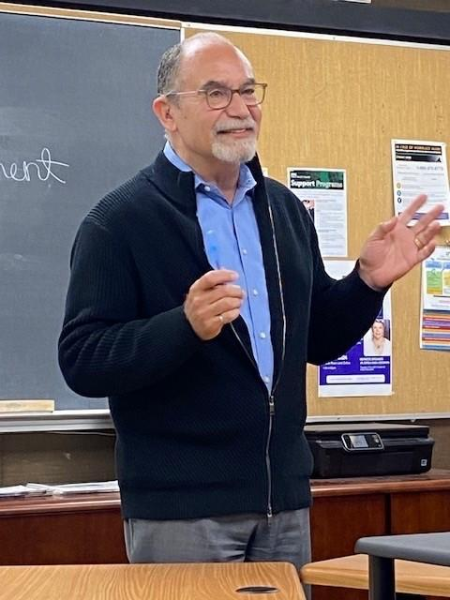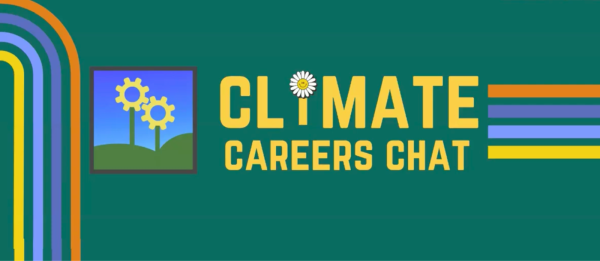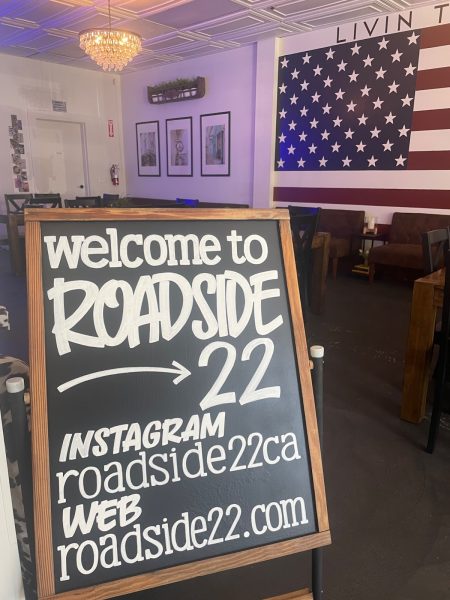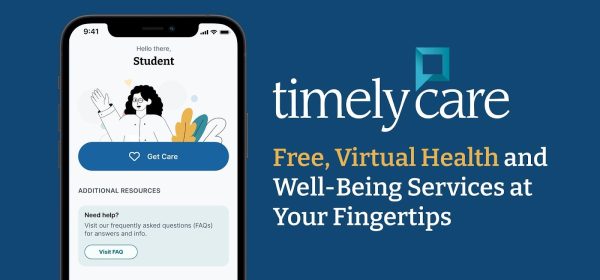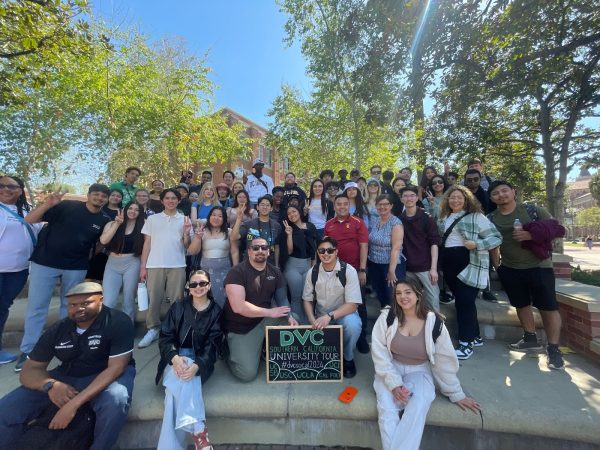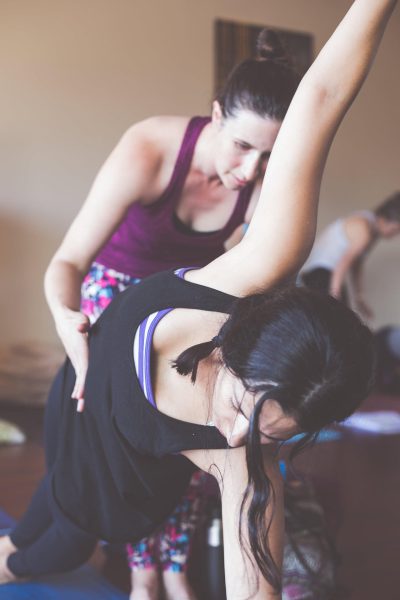A final farewell to President Peter Garcia
Diablo Valley College President Peter Garcia speaks with the Inquirer Thursday, May 12.
May 18, 2016
After 30 years of work with the Contra Costa Community College District, Diablo Valley College President Peter Garcia has announced his retirement. He has had a host of different positions within the CCCCD, including Vice President of Academic and Student Affairs, Dean of Economic Development, Dean of Humanistic Studies, faculty researcher, philosophy instructor, and offensive line coach for the Los Medanos football team. I sat down with him April 29 to ask him a few questions about his work within the CCCCD system.
Katy Hada: You had several years of teaching experience at Los Medanos College before switching over to administrative work there and then ultimately becoming President here at Diablo Valley College. What helped influence that switch from teaching to administrative work to becoming president?
Peter Garcia: The one thing I remember from my final interview with the President at the time, Chuck Case (?) was that he asked me what I was going to be doing in five years. And because I was just starting to teach, and I had never done a final interview of that nature with a college president before, when he asked me that I thought that meant I should be rethinking myself in about five years. So my answer at the time was “I hope to be a really good teacher, and I hope to still be here teaching and making a difference in student’s lives.” But I think he planted a seed that had me thinking about what the next phase of my career here would be. Interestingly, now as President, I realize you have a certain set of questions you ask, and probably every candidate he hired he asked that same question, but I heard it in a particular way for myself. I would say my other work at that time, as a priest in a religious order and the work I did after, and even while I was at LMC teaching, I was doing jobs in research, I coached football a couple semesters, we did these national issue forums, so I think pretty much from college to that job at LMC, I had had pretty frequent changes or deflections or reorientations in my career, so I think it’s just part of how I manage my career.
KH: And you were lucky enough to find those things and different avenues you were passionate in.
PG: Yes. And do it within a of couple organizations. You know, the Contra Costa Community College District allowed me to work two different sites, probably five or six different jobs, and still be an employee in the same organization, which is a great safety net in terms of security, but also then the freedom to really experiment and do some different things.
KH: What is the impulse behind your retirement?
PG: Internal. I’ve never been one to think about retirement. I have colleagues that I love who talk about “Oh, I’m going in five years,” or “I’m going in three years” and that’s just never been the way I’ve thought about my career. I think probably at the beginning of the year I started thinking about retirement. And not like planning retirement, I mean it was just on my mind. So I actually did some of the things that you do if you’re thinking about retiring. And at some point I just said “If I’m thinking about it, and I’ve looked at these things, it’s probably an indication I’m ready to retire.”
KH: What are you most proud of accomplishing during your time as president of DVC?
PG: The relationships with people. We’ve seen a lot of internal folks move, and those are all relationship where you’re looking at someone saying “we want you to do this with us or for us or for your students or for your colleagues.” And then the relationships with the existing folks. Some really good colleagues and friends as a result of that. And the fact that the focus of our relationships were on students. You know, how are we going to make them better on their pathways to whoever they want to be. That’s what I’m proudest of.
KH: Was that shift from working with students on an individual level directly in classrooms, to working with them in a much broader spectrum in terms of student interest a difficult switch to make?
PG: It was really a change. Probably the biggest was, when you work with students, they’re in real time. You see them in the classroom, you’re spending time with them. For me it was a very nourishing relationship, watching people learn and seeing them redefining themselves. Students in general are really positive, so the feedback and kudos you’d get from your work is really amazing. What I will say is grading student work is something you seldom miss. Grading is a solitary discipline, almost like a self flagellation, you’ve got to kind of grit your teeth and bare it. So that’s not something you miss. You do miss students though. I think staying on a college campus, you run into student in leadership issues, you run into them in governance work, you evaluate faculty periodically, and you see students there, you’re there for graduation. You get some of the best moments in student’s lives. You’re there for disciplinary actions too, which are not always fun, but they’re good for the institution.
KH: What is one thing you’re sorry you were unable to accomplish during your time as president?
PG: The deteriorated state of the PE/athletic facilities is one of the things I’m glad Measure E will solve. I wish I could have seen it. I will come back and see it though. And then there’s the orange carpet in the PAC. I hate it. It’s vintage 1972 or ’74. I know that because when they built LMC in 1974, they used that same carpet throughout. There is none of that carpet left at LMC, but it’s still at DVC. I would hope that we would have removed that last vestiges of that remnant, but we haven’t. And I’m hoping that maybe this summer that will change.
KH: What do you wish for DVC moving forward without you once you retire?
PG: Just incredible student success. I think DVC is at it’s best when it’s focused on student success, by that I mean employees — whether that means faculty or managers or classified — when they’re focused on student success, do an incredible amount of good work. The relationships get defined by doing that work. I think it’s really a marvelous place. And specifically the work that we’ve been trying to do, which is bringing equity to the long history of excellence here at DVC. Making sure that students, whether they’re African American or Latino, reentry veterans or single mothers, graduates of Lamorinda schools or Baypoint schools, they’re all experiencing the same level of success. I think that’s really important. I’d love to see a more integrated relationship between our international students and our domestic students, so they have lasting relationships that are either business or personal 20 years from now.
KH: What do you plan on doing once you retire and what are you looking forward to?
PG: I’m looking for a little bit of quiet in terms of some time to reflect on who I want to be. I’ve been laughingly saying “who I want to be when I grow up.” The notion of not necessarily being defined by my work in this next phase, but by my character or interests or what I would call my soul or spirit. What am I about? Who am I? I’m looking forward to working on that.
Peter Garcia’s final day as DVC president will be June 30, 2016. We wish him all the best with the next phase of his life.





































































